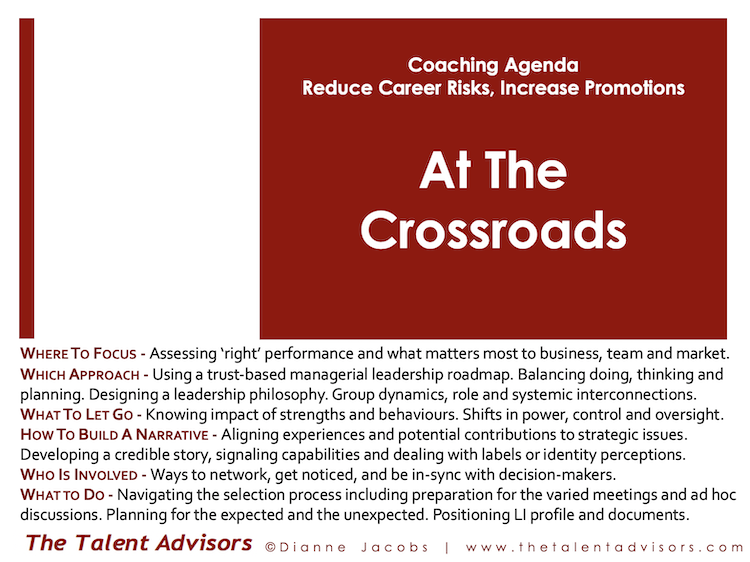FOR THE CROSSROADS
This article is part of our Insights For Action series. Join the mailing list to receive this and more.
While performance counts and the right performance counts even more, technical and functional expertise is not enough. As an individual progresses, they need to be less parochial and see the business more as a connected system, where one function’s outputs are another’s inputs and leadership spans boundaries.
Organisations value people who can read the marketplace sufficiently to synergise what it means for the business (direction); prioritise what needs to be done (focus); know what they need to do within, across, and outside the organisation to achieve this (connectivity); and then lead with positive impact with his or her own teams (engagement).
Most of us would want to add that we value leaders who:
- Act ethically, morally, and responsibly
- Clarify and communicate the organisation’s mission and values
- Create a cohesive, inclusive and well-functioning team
- Foster trust in the leader and the organisation
- Enable people to enjoy, belong, be safe and feel fulfilled
- Bring shared success to the business and its people.
Capabilities that signal you belong at the next level include: business acumen; strategic thinking; an ability to identify talent and build a unified team; ‘doing’ as well as thinking and planning; knowing when to change or innovate; tolerance for, and the management of, risk; working across silos; influencing and being a positive influence; clear and confident communication; dealing well with conflict; and being well-adjusted and willing to learn.
Conversely, your suitability will be undermined if you have fumbled on a matter to the extent that results were compromised; ignored tough questions, indicating an inability to address relevant issues or cope with the ambiguity of not necessarily having an answer; or appeared to act on whim, without recall to judgement based on a fine balance of analysis, experience and instinct.
How the business operates at a systemic level dictates the ‘role-in-practice’ and the value of an individual’s particular strengths or capabilities. Your reflective coaching questions should be: ‘What am I really paid to do?’, and ‘Do I work on what matters most?’ Then, follow this up with: ‘What is my meaningful contribution to business results?’ and ‘How do I prove it?’
What emerges is:
· What you personally are good at
· What you do better than other people
· What you do that few people are good at
· What you are good at, that is distinctive, competitive and enables organisational strategy.
Then there is the notion of versatility or being able to use capabilities with situational appropriateness and in the right context. Leaders have to learn to not only modulate (either accelerate or decelerate) their strengths, but to know which strength is more effective in differing situations. You’re an achiever. Yet, achievement drive applied in the wrong situations or with the wrong intensity can be destabilising.
🚩 Enquire about our coaching program here. Discover what support we offer executives and organisations or be added to the distribution list for future articles.
Copyright and All Rights Reserved | About Dianne Jacobs


